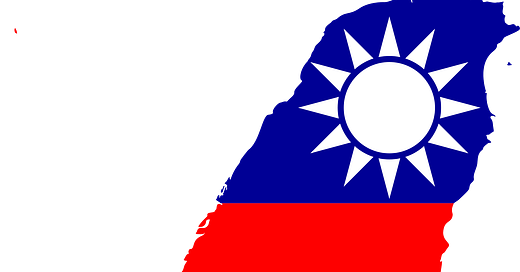Why “Taiwanian” Makes More Sense Than “Taiwanese”
Rethinking East Asian Naming Logic for a Freer World
In English, the way we name people and languages from different countries often follows a consistent structure. But when it comes to East Asia — particularly Taiwan — that logic breaks down.
Let’s examine the pattern:
Spanish refers to both the language and the people of Spain.
Polish refers to both the language and people of Poland.
Tibetan means the people of Tibet and the language they speak.
English is the language, while American refers to the people of the U.S.
Korean is used consistently for both language and nationality.
Japanese and Chinese are similarly used for people and language — but with an imperial undertone rooted in the "-ese" suffix, which historically carries an orientalist or colonial flavor.
Now consider Taiwan.
Most English speakers refer to the people of Taiwan as Taiwanese, but this form has no clear distinction between the people and the language, and the suffix “-ese” — as in Chinese, Vietnamese,… — often connotes a lack of individuality or democratic identity, especially in Western linguistic history.
Compare:
American from America
Canadian from Canada
Australian from Australia
So why not Taiwanian from Taiwan?
“Taiwanian” follows this democratic naming pattern and better reflects Taiwan’s distinct identity — not only culturally and politically, but morally — as a free society aligned with the values of the democratic world.
In contrast, the "-ese" suffix leaves Taiwan semantically tethered to an outdated linguistic system that has long blurred the line between the people of Taiwan and authoritarian China.
🌏 Linguistic Precision Is Political Clarity
Calling someone Taiwanian instead of Taiwanese is not merely a grammatical decision. It’s a stance.
It tells the world:
Taiwan is not a province of China.
Taiwanese people, more appropriately Taiwanians, are not a subset of “Chinese.”
Taiwan is a sovereign, democratic nation, and deserves naming consistency equal to Korean, Polish, or American.
If English → American
If Korea → Korean
If Spain → Spanish
Then Taiwan → Taiwanian (not Taiwanese)
✅ Conclusion: Words Matter
Using "Taiwanian" is a simple yet powerful way to affirm democratic identity, reject CCP narratives, and call for equal treatment in international discourse.
🗽 It's time we correct the linguistic map — in our dictionaries and in our minds.






